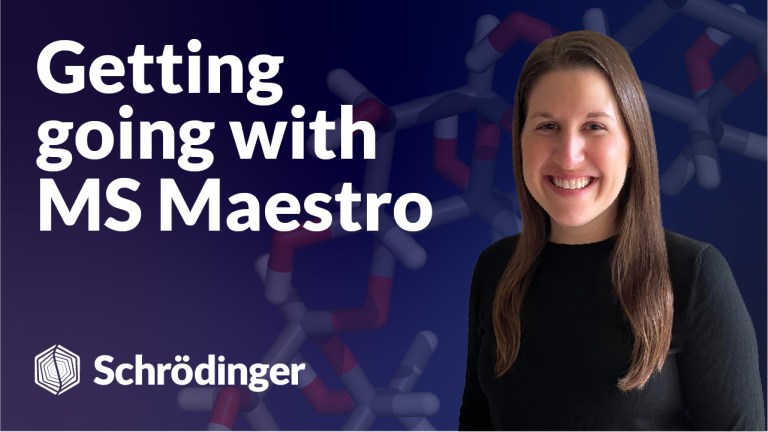Free learning resources
Quickly learn how to integrate Schrödinger technology into your research. From overviews to deep dives, you can find information about applications, workflows, and analysis here.
Quickly learn how to integrate Schrödinger technology into your research. From overviews to deep dives, you can find information about applications, workflows, and analysis here.
 Video
Materials Science
Video
Materials Science
A free video series introducing the basics of using Materials Science Maestro.
An introduction to Materials Science Maestro, covering basic navigation, an intro to building models and several of the key functionalities of the graphical user interface.
Comprehensive reference documentation covering materials science panels and workflows.
Self-guided step-by-step introductions to various workflows with example files for getting comfortable with Schrödinger tools.
Short video overviews of specific introductory and scientific topics, including summaries of new release features.
A one-page PDF that visually describes the panel or workflow.
Learn to analyze the selectivity of the catalytic oxidation of CO and H2 on a Pd(111) surface using Microkinetic Modeling (MKM) calculations.
Learn to prepare a complex protein system for a Molecular Dynamics (MD) simulation.
Learn to use the Coarse-Grained Force Field Builder to automatically fit parameters to the Martini coarse-grained force field for a complex protein solution system.
Learn to build a machine learning (ML) model to predict cost and viscosity of shampoo formulations with missing structural data.
 Video
Materials Science
Video
Materials Science
The video demonstrates how to use the Single Complex Builder panel within Schrödinger’s Materials Science Suite to build organometallic complexes.
 Video
Materials Science
Video
Materials Science
The video demonstrates how to use the Enumerate Adsorbates panel within Schrödinger’s Materials Science Suite to build adsorbate structures for when a gas-phase molecule adsorbs on a solid substrate.
Get an overview of the Materials Science Panel Explorer panel for filtering for tools of interest.
Learn to build and analyze a complex lipid bilayer and how to embedd a protein.
Build single or multi-component lipid membranes with or without an embedded membrane protein.
Calculate structural properties for a lipid membrane over the selected frames of a trajectory.
Level up your skill set with hands-on, online molecular modeling courses. These self-paced courses cover a range of scientific topics and include access to Schrödinger software and support.
Connect your students to industry-leading molecular modeling software through a web-based platform. Incorporate molecular modeling in the classroom.